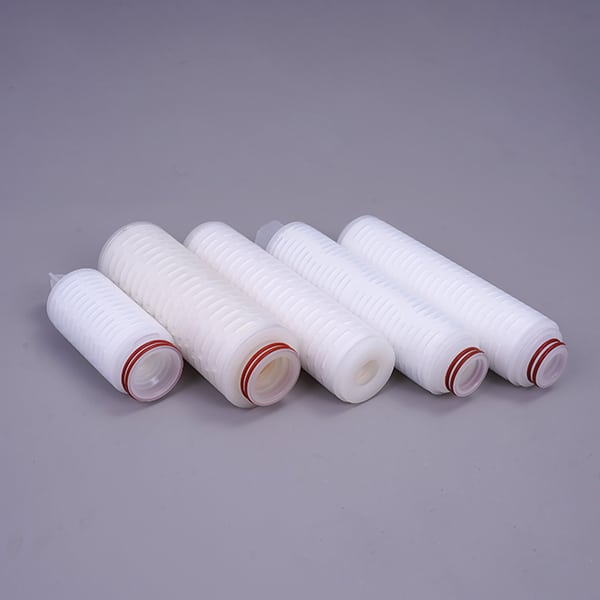Liquid filter cartridges are essential in various industrial applications where the quality and purity of fluids are critical to the overall process. These cartridges are engineered to remove contaminants, ensuring smooth operations and protecting equipment from damage. Industries such as food and beverage production, pharmaceuticals, oil and gas, water treatment, and chemical processing rely heavily on liquid filtration systems to meet stringent quality standards. Selecting the right filter cartridge can significantly impact both operational efficiency and long-term costs.
Why Liquid Filter Cartridges Matter
In industrial settings, impurities in liquids can range from suspended solids to dissolved gases, microorganisms, or chemical contaminants. The use of liquid filter cartridges helps industries ensure their products meet the desired quality by removing unwanted particles and protecting downstream equipment from wear and tear. For instance, in water treatment, these filters remove sediments, organic compounds, and pathogens, making water safe for reuse or discharge. In chemical processes, they help maintain product purity by filtering solvents and reagents.
Liquid filter cartridges come in various forms—pleated, depth, and membrane filters—each serving specific roles based on the application and the nature of contaminants. Pleated filters, for instance, offer a high surface area for efficient filtration of large volumes, while depth filters are excellent for trapping particles throughout the thickness of the media.
Key Considerations When Choosing a Filter Cartridge
To choose the right liquid filter cartridge for an application, several factors must be taken into account:
- Nature of the Liquid: The type of liquid being filtered is perhaps the most crucial consideration. For instance, chemical compatibility plays a significant role in selecting filter material. In processes that deal with harsh chemicals, like petrochemical refining, high-temperature or chemically resistant materials such as polypropylene or metal filters may be necessary. For pharmaceutical or food and beverage applications, filter cartridges must comply with regulatory standards to avoid contamination.
- Micron Rating and Efficiency: The size of particles to be removed determines the micron rating of the filter. Filters with low micron ratings (e.g., 0.5-1 micron) are used to trap very fine particles, while higher micron ratings (e.g., 100 microns) are suitable for larger particles. In industries like water treatment, where the removal of fine particulates is essential, absolute-rated filters are preferred due to their ability to remove nearly 100% of contaminants. On the other hand, nominal filters, which trap around 75% of particles at their rated micron size, might be sufficient in less critical applications.
- Flow Rate and Pressure Drop: Filtration efficiency is often balanced with flow rate. High flow processes such as those in oil and gas or chemical refining require filters that can handle large volumes without causing a significant drop in pressure. Pleated filters, with their larger surface areas, can handle such demands effectively. Some cartridges, like the LiquiPleat™ HF Series, are specifically designed for high-flow applications, ensuring minimal disruption to operations.
- Filter Media: The material of the filter media should be chosen based on the operational environment. For example, polyester and polypropylene are common choices due to their chemical resistance and durability. In high-temperature applications, filters made of fiberglass or metal provide the necessary resilience.
Applications of Liquid Filter Cartridges
- Water Treatment: In both municipal and industrial water treatment plants, liquid filter cartridges play a vital role in purifying water by removing sediments, microorganisms, and chemicals. They help in ensuring compliance with health and safety standards for drinking water or preparing wastewater for safe disposal.
- Pharmaceuticals: The pharmaceutical industry relies on ultra-pure water and chemical processing. Liquid filter cartridges are employed in processes that require the highest level of sterility and purity, such as in the filtration of injectable drugs and medical solutions.
- Oil and Gas: In oil and gas operations, filtration is used to remove solids, water, and contaminants from crude oil, natural gas, and other process fluids. High flow filter cartridges, such as those in the LiquiPleat™ series, are essential in refining processes where large volumes of fluid need to be filtered continuously.
- Food and Beverage: Liquid filter cartridges are indispensable in food and beverage processing, ensuring the removal of unwanted particles from raw materials and final products. They help maintain consistency in taste and quality by filtering out sediments and impurities without affecting the flavor.
Conclusion
Selecting the right liquid filter cartridge for your application is crucial to ensuring operational efficiency, product quality, and equipment longevity. By considering factors such as the nature of the liquid, micron rating, flow rate, and material compatibility, industries can optimize their filtration processes. Whether in water treatment, pharmaceuticals, or oil and gas, the right filter cartridge will provide reliable and cost-effective performance, minimizing downtime and reducing the need for frequent maintenance. In today’s competitive industrial landscape, investing in the right filtration system is not just about meeting regulatory requirements—it’s about gaining a significant advantage in terms of operational efficiency and cost savings.

